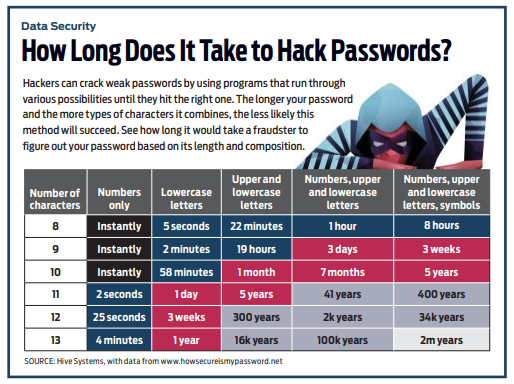
In cybersecurity, it is essential to trust reliable sources and adopt best practices to ensure your online safety. Here are some key aspects to consider:
- Trusted Security Solutions: Rely on reputable and well-established cybersecurity solutions from trusted vendors. Use antivirus software, firewalls, and anti-malware programs to protect your devices and networks.
- Regular Updates: Keep your operating system, applications, and security software up to date. Regularly installing updates and patches ensures that known vulnerabilities are patched, enhancing your protection against potential threats.
- Strong Passwords: Use strong, unique passwords for all your online accounts. Include a combination of upper and lowercase letters, numbers, and special characters. Avoid using easily guessable information like birthdays or names.
- Multi-Factor Authentication (MFA): Enable MFA whenever possible. This adds an extra layer of security by requiring a second form of authentication, such as a code sent to your mobile device or biometric verification, in addition to your password.
- Secure Network Connections: Be cautious when connecting to public Wi-Fi networks, as they may be insecure and expose your data. Whenever possible, use a virtual private network (VPN) to encrypt your internet traffic and ensure a secure connection.
- Safe Browsing Habits: Exercise caution while clicking on links or downloading files from unfamiliar websites, emails, or social media messages. Be wary of phishing attempts, which often aim to trick users into revealing sensitive information.
- Regular Backups: Regularly back up your important data to an external device or secure cloud storage. In the event of a cyber incident, having backups ensures that you can restore your data without paying a ransom or losing critical information.
- Education and Awareness: Stay informed about the latest cybersecurity threats and best practices. Educate yourself and your team members about common attack vectors, such as phishing and social engineering, to avoid falling victim to them.
- Privacy Settings: Review and adjust the privacy settings on your devices, applications, and social media platforms. Limit the amount of personal information you share online and only allow necessary access to your data.
- Trustworthy Sources: When seeking information or advice about cybersecurity, rely on reputable sources such as official government websites, established cybersecurity organizations, and recognized experts in the field.
Remember, cybersecurity is an ongoing process, and staying vigilant is crucial. By implementing these practices and being cautious about your online activities, you can enhance your cybersecurity posture and reduce the risk of falling victim to cyber threats.
https://avantinetworks.com/10-things-to-understand-to-increase-your-cybersecurity/
No comments:
Post a Comment